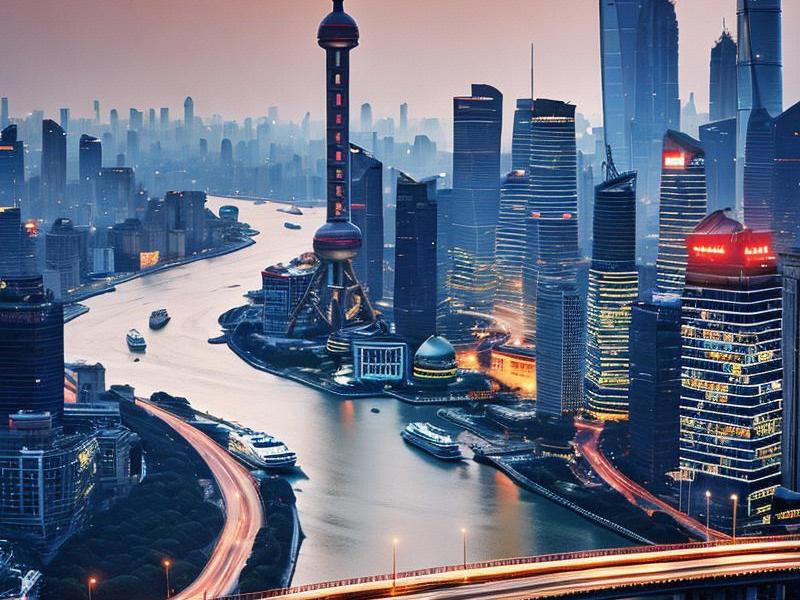This article delves into the multifaceted aspects of Shanghai, exploring its rapid urban development, economic transformation, rich cultural diversity, and growing global influence. As one of the most dynamic cities in the world, Shanghai continues to shape the future of China and beyond.

Shanghai, often referred to as the "Pearl of the Orient," stands as a beacon of modernity and progress in China. With its stunning skyline, bustling streets, and rich cultural heritage, Shanghai is a city that seamlessly blends tradition with innovation. Over the past few decades, it has transformed from a modest port city into a global metropolis, playing a pivotal role in China's economic and cultural development.
The urban landscape of Shanghai is a testament to its rapid growth and transformation. The iconic skyline, dominated by the Oriental Pearl Tower, the Jin Mao Tower, and the Shanghai Tower, symbolizes the city's economic prowess and architectural ingenuity. These skyscrapers, along with the historic Bund and the futuristic Pudong district, crteeaa unique juxtaposition of old and new, reflecting Shanghai's ability to preserve its heritage while embracing modernity.
One of the key drivers of Shanghai's urban development has been its commitment to infrastructure investment. The city has invested heavily in transportation networks, including its extensive metro system, which now boasts over 17 lines and serves millions of residents daily. The Maglev train, connecting Pudong International Airport to the city center, is a marvel of modern engineering, offering a fast and efficient mode of travel. Additionally, the Hongqiao Transportation Hub integrates high-speed rail, airports, and metro services, making Shanghai a major transportation hub in Asia.
Economic transformation has been at the heart of Shanghai's rise as a global city. Once a trading port, Shanghai has evolved into a financial and commercial powerhouse. The establishment of the Shanghai Free Trade Zone in 2013 marked a significant step in its economic liberalization, attracting foreign investment and fostering innovation. Today, Shanghai is home to the world's busiest container port, handling billions of dollars worth of goods annually.
爱上海419论坛 The city's financial district, known as Lujiazui, is a hub of global finance. It houses the Shanghai Stock Exchange, one of the largest in the world, and is a key player in international capital markets. Major multinational corporations have set up their regional headquarters in Shanghai, drawn by its business-friendly environment and strategic location. The city's economy is diverse, with strengths in finance, trade, technology, and manufacturing, making it a resilient and dynamic economic engine.
Cultural diversity is another defining feature of Shanghai. As a former concession city, Shanghai has a rich history of cultural exchange and integration. This is evident in its architecture, cuisine, and arts. The French Concession, with its charming cobblestone streets and European-style buildings, stands as a reminder of the city's colonial past. Similarly, the International Settlement area showcases a blend of Western and Chinese architectural styles.
Shanghai's culinary scene is a melting pot of flavors, reflecting its diverse population. From traditional Shanghainese dishes like xiaolongbao (soup dumplings) and shengjianbao (pan-fried buns) to international cuisines, the city offers a gastronomic experience that caters to all tastes. The vibrant night markets and bustling food streets are a testament to the city's culinary vibrancy and the joy of communal dining.
The arts and culture scene in Shanghai is thriving, with numerous museums, galleries, theaters, and cultural institutions. The Shanghai Museum, renowned for its extensive collection of Chinese art, attracts millions of visitors each year. The city's theaters host a wide range of performances, from traditional Chinese opera to contemporary plays and concerts. The Shanghai International Film Festival, one of the oldest and most prestigious film festivals in Asia, showcases the latest cinematic achievements from around the world.
上海龙凤阿拉后花园
Shanghai's global influence extends beyond its economic and cultural achievements. The city has played a pivotal role in China's integration into the global economy and its efforts to promote international cooperation. As a member of the World Expo family, Shanghai hosted the 2010 World Expo, which drew millions of visitors and showcased the city's commitment to sustainable development and innovation.
The Expo's legacy is evident in the transformation of the former Expo site into the Expo City, a vibrant area that hosts exhibitions, conferences, and cultural events. The city's leadership in sustainability is also reflected in its green initiatives, such as the construction of energy-efficient buildings, the promotion of public transportation, and the development of urban green spaces.
Shanghai's education and research institutions are also contributing to its global reputation. The city is home to some of the top universities in China, including Fudan University and Tongji University, which attract students and researchers from around the world. These institutions are at the forefront of scientific research and innovation, driving Shanghai's technological advancements and economic growth.
上海品茶论坛 The city's government has implemented policies to enhance the quality of life for its residents and attract talent. Initiatives such as the Free Trade Zone, the Science and Technology Innovation Board (STAR Market), and the optimization of the business environment have created a favorable climate for entrepreneurship and innovation. Shanghai's commitment to sustainability and livability is evident in its urban planning, with a focus on creating a harmonious balance between economic development and environmental protection.
As Shanghai continues to grow and evolve, it faces challenges such as managing urbanization, addressing environmental issues, and ensuring social equity. However, the city's resilience, adaptability, and innovative spirit position it well to overcome these challenges and maintain its status as a global leader.
In conclusion, Shanghai is a dynamic metropolis that exemplifies China's rapid development and transformation. Its stunning urban landscape, economic prowess, cultural diversity, and global influence make it a city of immense significance. As Shanghai looks to the future, it remains committed to innovation, sustainability, and international cooperation, shaping not only its own destiny but also contributing to the global community.